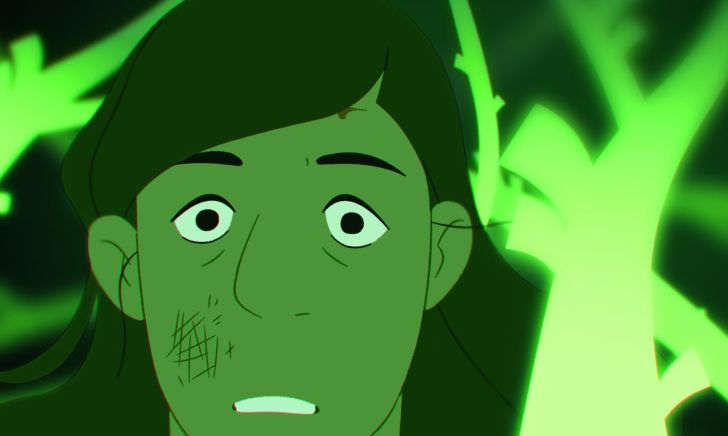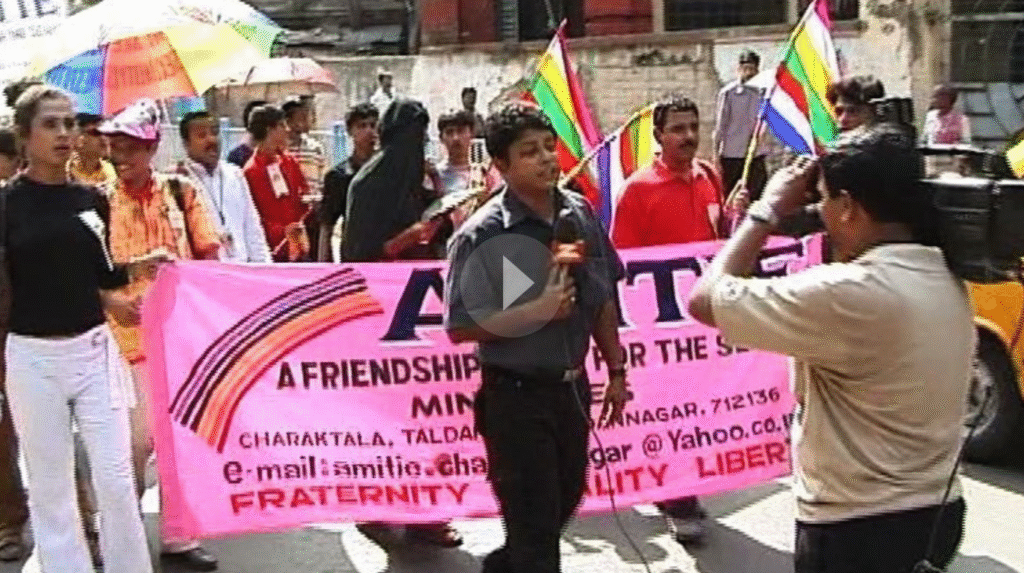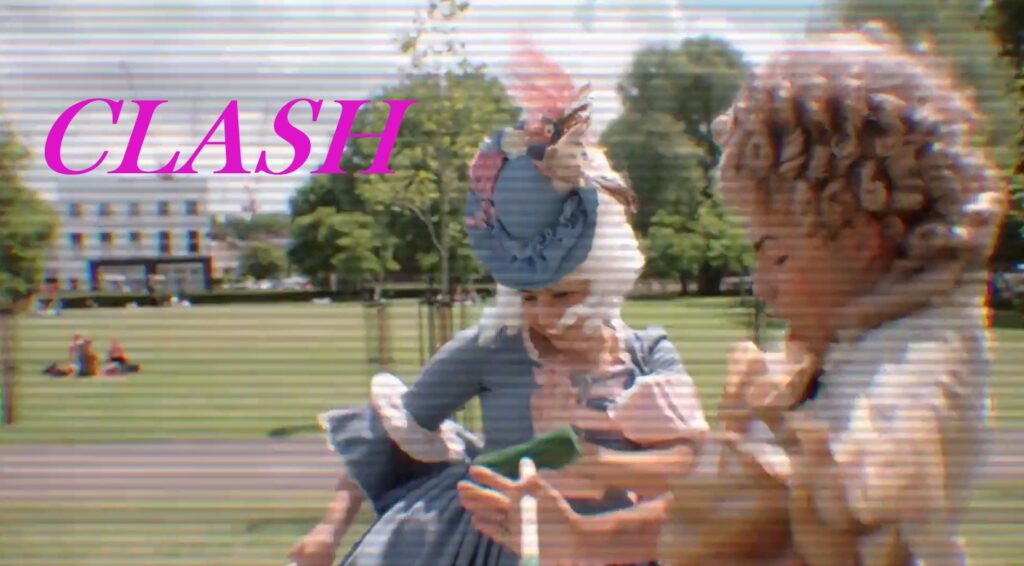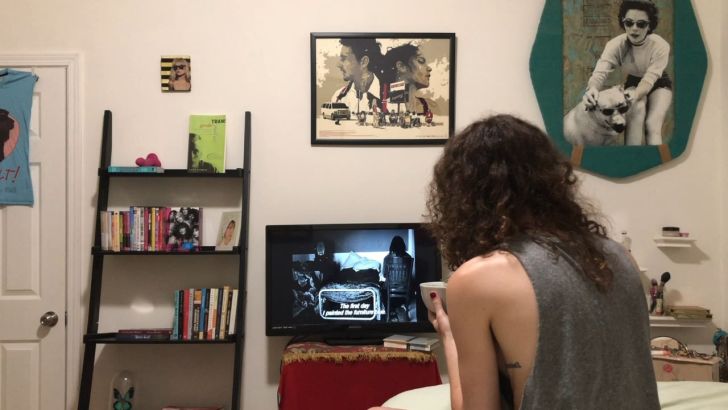Three films about a kind of (queer) wild justice
Sometimes, they had it coming it all along.
The protagonists in this week’s short films have all been severely wronged, and not solely for personal reasons: all of them have been treated unjustly due to systemic oppression, which is reinforced by how individuals have weaponized that against them. Whether because of queerness, caste, socioeconomic status, race, fatness, or a combination of the above, our characters have been mistreated, and have to use their cunning – and sometimes, their more twisted sides – to get back what they deserve.

“Because you’re Bharti Mondal. Do you have a privileged-caste surname like Banerjee or Sharma?”
Geeli Pucchi | Sloppy Kisses, written and directed by Neeraj Ghaywan, is one of the four short films in the anthology Ajeeb Dastaans | Strange Stories. This short tells the messy, twisty, and captivating story of Bharti Mondal (Konkona Sen Sharma), a Dalit woman who has applied for a data operator office job at the company where she currently works on the factory floor. However, she is passed over for the job because of her caste – though her manager (Gyan Prakash) won’t say that out loud – in favor of Priya Sharma (Aditi Rao Hydari), a Brahmin woman. Despite Bharti’s pain over the job, she and Priya strike up a friendship that begins to change into something more as Priya struggles in her marriage to a man she doesn’t love. But Priya’s own complicity in reinforcing casteism continues to harm and anger Bharti, even as Bharti is developing feelings for her.
I’m breaking one of my own rules by recommending Geeli Pucchi | Sloppy Kisses, because although director Neeraj Ghaywan and members of the film crew are Dalit and queer, the role of Bharti is played by an upper-caste actor rather than a Dalit actor. But after reading reviews of the film by a number of Dalit queer folks, all of whom found things to both connect to and critique in the film, I wanted to include the film while urging anyone who watches it to read those perspectives as well. This additional layer is important enough that I’m sharing a number of quotes here by those writers on the casting and storytelling, and I encourage everyone to read their full reviews after watching the film. I also benefited from reading the director’s thoughts in this interview with Scroll.in.
“[Geeli Pucchi is] the first film to have a Dalit queer woman as a protagonist, the first to witness the word Dalit as is, the first to have been directed by a filmmaker – a man who belongs to the Dalit community, the first to have a film crew of Dalit and queer folks supporting and guiding the filmmaking process,” writes Jyotsna Siddarth for The Quint. “Geeli Pucchi is a lesson in intersectional, inclusive filmmaking – to tell a nuanced story even if the identity of an actor is far removed from the identity of a character and people making the film.”
“Geeli Pucchi has a riveting storyline and is inspiring, but it is not without flaws,” writes Megha Malakar for The News Minute. “Starting from casting to who narrates the story, I believe they could have done better. Although it portrays different marginalised identities, has a brilliant plot and good performances, one cannot take away the fact that the role of the main protagonist was played by a Sen Sharma and not a Mondal. It’s like seeing my exact copy on screen but knowing the person does not actually relate to any of my experiences.”
“As much as I can’t let go of the discomfort of not seeing a Dalit person portraying Bharti’s character,” writes Sudipta Das for Feminism In India, “I also don’t want to let go of the joy of seeing a character on screen that tells our story, shares the same vulnerability as we do, whose feelings aren’t aspirational but inspirational, who retaliates with authenticity and not idealism. Geeli Pucchi makes you feel many things. The feelings are messy but I am also learning to make peace with the messiness of caste and queerness.”
Geeli Pucchi | Sloppy Kisses

“One of the students couldn’t go suddenly, so we are trying to pick one more student.”
교환학생 | Exchange Student, directed by Cho Hyunjun, introduces us to Kim Su-min (Ahn Soyo), a bright student on scholarship at her university, traveling there to start her next semester. Unfortunately, the spot in the dormitory she’s been assigned to is taken away from her at the last-minute – unbeknownst to her, because a stuck-up student named Park Han-byul (actor not listed) has a rich and overbearing father (Lee Yang Hee) who uses his connections to get Han-byul placed in the dorm. Su-min finds out about a single slot in an exchange program to Hawaii that might help her with housing, but Han-byul decides to vie for it as well.
Unlike the previous film, 교환학생 | Exchange Student allows us the simplicity of easily hating Han-byul, who is mean and obnoxious on top of her abuse of her privilege. Her comeuppance, when it arrives, is all too sweet and vindicating for both Su-min and for us.
교환학생 | Exchange Student

“Only one thing to do with a system that fucks you.”
Fuck ‘Em Right Back*, written by Harris Doran and Emmanuel “DDm” Williams, and directed by Doran, follows the story of Sammy (played by DDm), a queer rapper in Baltimore whose road to fame is threatened by Sheila (Catherine Curtin), his vindictive boss at his day job who’s looking for a reason to fire him through “random” drug testing. Sammy and his best friend Yolanda (Kara Young) have to figure out a way for Sammy to keep his livelihood and go on a rap tour of Delaware that he’s been counting on.
DDm absolutely makes this film, also showcasing his rapping; all the amazing music in the film is by DDm. Despite the high stakes and the way Sammy is continually fucked over, his determination to not let the system screw him – and the film’s portrayal of his revenge through perfect-pitch comedy – win over in the end, with a sense of righteous vindication and fun. You can also find the film, and DDm, on twitter.
*The film’s title is actually stylized as seen in the image above; I have written it out in case anyone is reading this with a screenreader.
Fuck ‘Em Right Back










